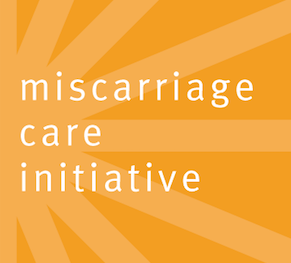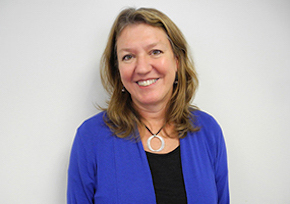Nov 06

Help Us Protect Access to Sexual and Reproductive Health Care Today!
Newsletter/October 2016
 About one in five pregnancies ends in miscarriage. RHAP believes that everyone experiencing early pregnancy loss should be able to access high-quality, patient-centered care within their own communities. Too often, people experiencing a miscarriage are sent to the emergency room for treatment, which can be frightening and traumatizing during what is often a difficult time. Miscarriage can be an emotional process for women and their families, and it is critical that they receive care in settings that are familiar and safe. That is why, with the right training and support, family physicians and other primary care providers can treat early pregnancy loss in their own clinic settings.
About one in five pregnancies ends in miscarriage. RHAP believes that everyone experiencing early pregnancy loss should be able to access high-quality, patient-centered care within their own communities. Too often, people experiencing a miscarriage are sent to the emergency room for treatment, which can be frightening and traumatizing during what is often a difficult time. Miscarriage can be an emotional process for women and their families, and it is critical that they receive care in settings that are familiar and safe. That is why, with the right training and support, family physicians and other primary care providers can treat early pregnancy loss in their own clinic settings.
Research has shown that people achieve better health outcomes when they engage in shared-decision making with their clinicians. We believe that women, in conjunction with their clinicians, should be able to choose the treatment they feel is best for them. As RHAP’s medical director, Dr. Linda Prine, wrote in a blog post from a few years ago: “Miscarriage is so common, it should not be marginalized. There are rarely times that ER care is needed… I would really like to see family medicine step up to the plate and ‘own’ miscarriage care.” RHAP is committed to improving access to all three forms of miscarriage care within primary care: expectant, medication management, and uterine aspiration. Through our research, clinical resources, and the Miscarriage Care Initiative, we work closely with family physicians and other primary care providers to ensure that they have the tools and resources to offer all three options to their patients. Please take a moment to check out our miscarriage management resources.
Pregnancy and Infant Loss Remembrance Day is celebrated in several countries around the world on October 15. Learn more about Pregnancy and Infant Loss Awareness Month and Remembrance Day here. We know that early pregnancy and infant loss can be a very difficult time, and there is support available. First Candle is a great resource for grieving families, and they have a toll-free 24/7 hotline for anyone to call. Please call 1-800-221-7437 to speak with a counselor.
 This month marks the kickoff of the 2016-2017 Miscarriage Care Initiative (MCI)! With the MCI, RHAP is increasing the number of primary care clinics and providers offering comprehensive miscarriage care, and developing clinical leaders and advocates within family medicine across the country. Five organizations will receive intensive support from RHAP to integrate and expand treatment for early pregnancy loss into their primary care practice sites. Leading these efforts is a Clinical Champion, a family physician who has demonstrated commitment to expanding access to evidence-based, patient-centered miscarriage care. We are so pleased to share with you our 2016-2017 MCI cohort.
This month marks the kickoff of the 2016-2017 Miscarriage Care Initiative (MCI)! With the MCI, RHAP is increasing the number of primary care clinics and providers offering comprehensive miscarriage care, and developing clinical leaders and advocates within family medicine across the country. Five organizations will receive intensive support from RHAP to integrate and expand treatment for early pregnancy loss into their primary care practice sites. Leading these efforts is a Clinical Champion, a family physician who has demonstrated commitment to expanding access to evidence-based, patient-centered miscarriage care. We are so pleased to share with you our 2016-2017 MCI cohort.
Clinica Family Health Services (Denver, Colorado): Clinica is a large FQHC with several locations throughout the Denver and Boulder metropolitan areas. Clinica provides full-spectrum dental, medical, and behavioral health services to a diverse group of patients within their large service area. Dr. Britt Severson, a Family Physician, will head up the multidisciplinary teams working to implement the project across two Clinica sites. The MCI will help Dr. Severson and her team to ensure that every patient experiencing early pregnancy loss can choose what type of care they would like, in a setting that is accessible and comfortable.
Clínica de la Raza and Kaiser Permanente Napa-Solano Family Medicine Residency Program (Vallejo, California): Dr. Gabe Flaxman, a family physician and the Director of Obstetrics and Family Planning Curriculum, will be spearheading this joint effort between the residency and local federally qualified health center. The MCI will support Dr. Flaxman’s ongoing efforts to integrate teaching all three types of miscarriage care into the residency curriculum, and expand access to include aspiration management for early pregnancy loss. The MCI will also help expand access to comprehensive miscarriage care for patients at La Clínica, where residents rotate as part of their longitudinal community medicine training.
Esperanza Health Centers- Marquette Clinic (Chicago, Illinois): A large percentage of Marquette’s population are reproductive age women of color, and with the MCI, Dr. Patti Chico will work to ensure that her patients can receive comprehensive miscarriage care within their own community. Dr. Chico is a Family Physician and Lead Provider at Marquette Clinic, and also plans to implement the project at this federally qualified health center’s two other sites.
Maine Dartmouth Family Medicine Residency (Augusta, Maine): The Family Medicine Institute (FMI) is a long-standing practice in rural Maine which serves about 14,000 patients yearly. The FMI and its sister clinic further north are the primary area providers of prenatal care for pregnant women with substance abuse issues. Many of these women face stigma and shame outside of the community clinic. As such, Dr. Julia McDonald and her team plan to integrate comprehensive miscarriage management care so that their patients can receive treatment in a setting that is safe, accessible, and familiar. Dr. McDonald is on the faculty of the Family Medicine Residency and will work to integrate miscarriage management into the family medicine residency curriculum.
Maine Medical Center Family Medicine Residency (Portland and Falmouth, Maine): The Family Medicine Residency clinical practice is comprised of two sites that serve a diverse patient population in Portland and the surrounding communities, including a large percentage of patients who are refugees. Dr. Kohar Der Simonian, who is core faculty at the residency, will spearhead the organization’s efforts to integrate miscarriage care into the residency curriculum, with the goal of increasing options and reducing barriers to care for women experiencing early pregnancy loss.
 This fall, our medical director Dr. Linda Prine is receiving two major awards that recognize her achievements as a teacher, mentor, and advocate. On October 31st the Community Health Center Association of New York State will honor Dr. Prine with the Catherine Abate Memorial Award. Catherine Abate, like Linda Prine, is known as a beloved and fierce advocate dedicated to protecting and reforming New York state’s abortion and contraception laws. This award recognizes Dr. Prine’s efforts to push the envelope and expand access to full-spectrum reproductive health care in community health center settings.
This fall, our medical director Dr. Linda Prine is receiving two major awards that recognize her achievements as a teacher, mentor, and advocate. On October 31st the Community Health Center Association of New York State will honor Dr. Prine with the Catherine Abate Memorial Award. Catherine Abate, like Linda Prine, is known as a beloved and fierce advocate dedicated to protecting and reforming New York state’s abortion and contraception laws. This award recognizes Dr. Prine’s efforts to push the envelope and expand access to full-spectrum reproductive health care in community health center settings.
On November 6th, Dr. Prine will receive the prestigious Robert A. Hatcher Family Planning Mentor Award from the Society of Family Planning at their annual meeting in Denver, CO. This award recognizes Linda’s impact as a teacher and mentor. Linda has educated more than 190 family medicine residents to provide full-spectrum contraceptive and first trimester abortion care. Her former residents are now providing care all across the country. The fellowship program she created at the Reproductive Health Access Project has trained 20 family physicians since it launched. All the fellows are now providing and/or teaching reproductive health care, including abortion, contraception, and family planning.
Linda is tireless – juggling patient care with teaching, research, and advocacy. As busy as she is, she always finds time for one more patient and one more trainee. What we especially love about Linda is how she combines clinical rigor and the humanistic qualities of providing patient-centered care into something teachable, which is a rare asset. She knows exactly the right phrase to put the patient at ease and knows how to teach her learners and us the behaviors and language to help connect with the people we serve.
We are so grateful to have Linda as a colleague and leader. We learn from her every day.
 There’s a lot happening this fall with the Reproductive Health Access Network! In addition to the fall gatherings of our current Clusters, we’re also hosting two regional and one national gathering. Coming up the second weekend of October is our Network meeting at Family Medicine Midwest in Indiana, co-hosted by the Midwest Access Project (MAP). A few weeks later, Network members in the Northeast will gather at the Family Medicine Education Consortium (FMEC)’s annual meeting in Pittsburgh. Finally, along with RHEDI, we are hosting our yearly meeting at the North American Forum on Family Planning in November – last year, we had a turnout of nearly 60 pro-choice providers and residents!
There’s a lot happening this fall with the Reproductive Health Access Network! In addition to the fall gatherings of our current Clusters, we’re also hosting two regional and one national gathering. Coming up the second weekend of October is our Network meeting at Family Medicine Midwest in Indiana, co-hosted by the Midwest Access Project (MAP). A few weeks later, Network members in the Northeast will gather at the Family Medicine Education Consortium (FMEC)’s annual meeting in Pittsburgh. Finally, along with RHEDI, we are hosting our yearly meeting at the North American Forum on Family Planning in November – last year, we had a turnout of nearly 60 pro-choice providers and residents!
Over the past few years, we’ve been working very hard to continue growing the Network, especially on developing new local chapters, or Clusters. That’s why we are so excited to announce that the first-ever meeting of the Chicago Cluster is happening on October 20. RHAP will once again be collaborating with the Midwest Access Project, our partners in the Midwest. Family physicians and other pro-choice primary care providers will come together for dinner and a facilitated discussion on overcoming local and national barriers to providing reproductive health care. We’re so glad to have the Midwest Access Project on the ground, helping us organize and bring folks together to build a strong community of pro-choice primary care providers in Chicago.
We have active Clusters in Baltimore, Eastern Massachusetts/Boston, New Jersey, New York, Philadelphia, Rhode Island, and Vermont. If you live in one of these areas and would like to be connected with your local Cluster, or if you’d like to start a Cluster in your own community, please reach out to our program manager, Laura Riker.
 We just released three new miscarriage care fact sheets that provide in depth information on the different treatment options available to patients experiencing a miscarriage. Our miscarriage treatment options are listed below and the fact sheets are available for free download on our website.
We just released three new miscarriage care fact sheets that provide in depth information on the different treatment options available to patients experiencing a miscarriage. Our miscarriage treatment options are listed below and the fact sheets are available for free download on our website.
The Miscarriage Treatment: Medication sheet outlines the procedures, safety concerns, and other questions a patient may have when taking misoprostol, a pill that has a variety of uses, including medical management of a miscarriage.
Miscarriage Treatment: Letting Nature Take Its Course goes into the same amount of detail as the medication miscarriage sheet about safety concerns, the process of this treatment, and other questions that may arise about a natural miscarriage.
Miscarriage Treatment: Procedure sheet provides information on how you can manage your pregnancy loss if medication or expectant management (letting nature take its course) is not the best choice for you.
Deciding the best way to manage a miscarriage is a personal choice. We hope our fact sheets will help clinicians and their patients make educated, informed health decisions.
Your gift allows us to train and support health care providers across the United States so they can offer patients compassionate and comprehensive care.
Nov 06
